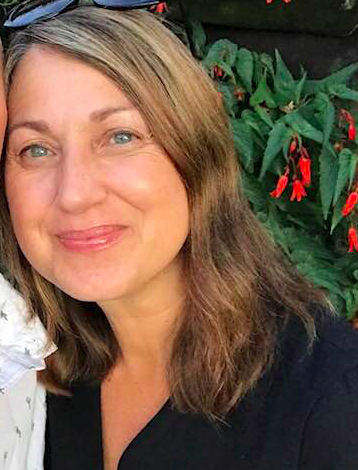
Keitha-Gail
Dr. Martin-Kerr identifies as a queer Black scholar. Born and raised in Jamaica and now living in America with her “non-traditional family” have contributed to her academic pursuit of trying to understand the lived experiences of women-who-love-women in Jamaica, which is a homonegative society. Her research connects to educational inclusivity, anti-oppressive ways of being, and literacy practices in and out of school settings. She teaches literacy content and pedagogy courses to pre-service and in-service teachers. Her recent publications are 1)Martin-Kerr, K-G. (2019).Fostering Critical Colonial Consciousness through Queer Pedagogy. In Blackman, S.N.J; Conrad, D. A.; Brown, L. I. (Eds). Achieving Inclusive Education in the Caribbean and Beyond: From Philosophy to Praxis. (pp. 193 – 205). Cham, Switzerland: Springer. 2) A Phenomenology Collective, Martin-Kerr, K.G. (2019). Cultivating Activism in the Academy: A Deleuzoguattarian Exploration of Phenomenological Projects. Qualitative Inquiry

Colleen
Dr. Colleen H. Clements is a lecturer in the critical social foundations of education, whose scholarly work primarily concerns a critical examination of the construction and performance of idealized white femininity as a racialized identity in white, hetero-normative, patriarchal U.S. society and its relation to teaching in both formal and informal learning spaces.
In much of her work, Colleen draws on her background in theatre in her use of performance studies and arts-based methodologies in her inquiry to examine the cultural and social role of dominant and counter-narratives in shaping human experience. Colleen came to the University of Minnesota after numerous years working in theatre, as both a teacher and actor. In addition to her PhD in culture and teaching, she holds an MFA in theatre.
Keitha-Gail’s, Colleen’s, Erin’s Contribution at the Symposium
Motherhood, Otherhood, and the State: Being in Academia
An academic Black mother’s harried attempt to get her daughter medical help at a local clinic exposes larger systems of white supremacist and colonial power and the technologies used to marginalize and dehumanize people based on their race, gender, and social class. The memory of this painful moment in the public sphere is a dangerous narrative of exclusion for the mother within the academic spaces in which she works and studies. When she finally feels able to share this memory with a collective of women academics, the narrative becomes a site for exploration of feminist and post-structuralist research methodologies and part of an expansive and liberatory practice for challenging the racial hierarchies within the academy and outside of it. As a collective, we analyze this memory, attempting to meaningfully examine, investigate, and grapple with its implications for the mother, for academic women, and for schools and the academy. This paper will briefly introduce the methodology of collective memory work and then focus in on three readings of the memory that help us think more deeply about the relationship between motherhood, otherhood, the state, and our lives as educators.